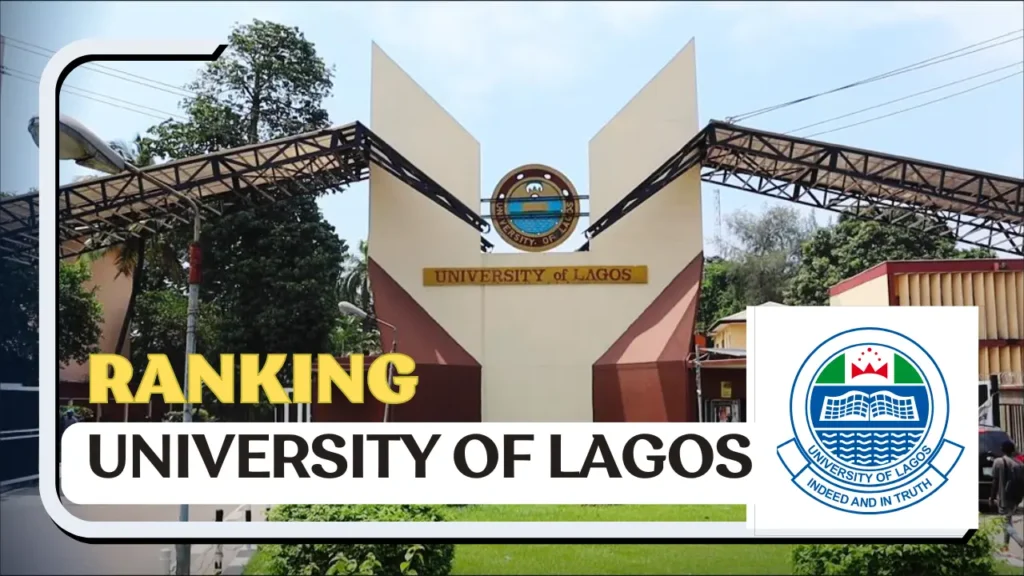Earning a university degree in Electrical and Electronic Engineering is one step toward a gratifying career in technology, innovation, and problem-solving. Several universities in this country have notable programs in this field, including the best facilities, experienced lecturers, and a curriculum designed to meet the needs of today’s market.
However, it is not easy to choose among so many options. The main challenging factors include national rankings, academic reputation, faculty expertise, and practical training opportunities. That is what is needed for the correct selection.
In this article, the best universities in Nigeria for the Electrical and Electronic Engineering major will be revealed, focusing on such criteria as proficiency in the academic field, provision of facilities, and financial contribution. Whether you are in the process of becoming an electrical engineering professional or lending strength to someone else to achieve their education goals, this article is extensive and the best resource for crystal transparent, objective decision-making during a successful academic and professional journey at the end of the day.
1. University of Lagos (UNILAG)

The University of Lagos (UNILAG) has one of Nigeria’s best Electrical/Electronic Engineering programs and boasts modern laboratories for Power Electronics, Signal Processing, and Control Systems. The department is known for its forefront research in renewable energy technologies, particularly in solar power and smart grid integration.
Working with the industry, lecturers from UNILAG, for instance, have agreements with international organizations like Huawei and General Electric, which makes it a lot of experience for students in industrial training and actual practices. The university also holds annual innovation challenges where engineering students are challenged to develop ideas for electrical problems that may occur in everyday life. This kind of designer input works to develop talent and students’ employability opportunities once they finish at the university.
2. University of Nigeria, Nsukka (UNN)

The Electrical/Electronic Engineering of the University of Nigeria, Nsukka (UNN), has an excellent reputation in the industry for its prowess in telecommunications systems and microelectronics research. Students have one of the most advanced electronics laboratories olutions engines and can engage in designing circuits, VLSI & embedded systems.
UNN is working with strong international partnerships, providing the most sought-after international exchange of brotherhood among European institutions. Students also have the opportunity to participate in cutting-edge research through the Telecommunications and Digital Signal Processing Research Group. From new projects pushing the boundaries of established technology, they can work on innovative projects for the first day.
3. Obafemi Awolowo University (OAU)

Obafemi Awolowo University (OAU) has established a formidable reputation in power systems engineering, particularly excelling in renewable energy and smart grid technologies. The Electrical/Electronic Engineering program offers students access to state-of-the-art power electronics laboratories to engage in cutting-edge research focused on sustainable energy solutions.
In addition to its core offerings, OAU provides a specialized program in embedded systems and the Internet of Things (IoT). This equips students with essential skills for designing and implementing next-generation electrical systems.
One of the highlights of the academic year is the annual TechFest, where industry leaders converge to share insights and foster connections with students. This event not only enhances networking opportunities but also keeps students informed about the latest trends and innovations in electrical engineering.
4. Covenant University

Covenant University boasts one of the most advanced Electrical/Electronic Engineering departments among private universities in Nigeria. The program strongly emphasises telecommunication systems, automation, and control engineering. Students have the unique opportunity to engage with cutting-edge technology at Covenant’s AI and Robotics Lab, where they can work on sophisticated control systems and smart energy management projects.
In addition to its robust curriculum, Covenant University offers certification programs in collaboration with leading tech companies like Cisco and Huawei. These programs help students earn industry-recognized qualifications, enhancing their employability. The university also fosters innovation through its TechPreneurship Center, encouraging engineering students to explore entrepreneurial ventures within the electrical and electronic engineering sectors.
5. Ahmadu Bello University (ABU)

Ahmadu Bello University (ABU) has a distinguished legacy in Electrical/Electronic Engineering, especially in telecommunications and power systems. The university’s Advanced Digital Systems Lab is dedicated to exploring communication systems, RF engineering, and satellite communication technologies. Here, students gain hands-on experience with sophisticated equipment and engage in cutting-edge research projects.
ABU also has a dynamic renewable energy research group focused on developing sustainable power solutions. This prepares students for the increasingly important field of green energy engineering. Moreover, ABU’s strong industry-academia collaborations ensure that graduates are well-equipped with the practical skills needed to thrive in today’s electrical and electronics industry.
6. Federal University of Technology Akure

FUTA’s Electrical/Electronic Engineering program is well known, especially in electronics, automation, and embedded systems. The Electronics and Control Engineering Lab at the university is home to such a lab, where students can roll up their sleeves, get down with dirt, and sink their teeth into all varieties of projects. From building robots and developing automation technology to solving real-time control systems, FUTA students are always up to something extraordinary.
One thing that makes FUTA stand out is its pledge to continue innovation, especially regarding renewable energy. With an extensive focus on the research being done in solar and wind energy systems at the university, students have an opportunity to work on projects that could help transform clean energy. Further, the syllabus is packaged with technical depth in subjects such as power electronics and control systems to ensure that FUTA graduates are a perfect fit for today’s industry.
7. University of Ilorin (Unilorin)

The Electrical/Electronic Engineering at UNILORIN is known for its strength in control systems, signal processing, and telecommunications. At UNILORIN, our Digital Electronics Lab is equipped with modern design tools to aid the students in going through the hands-on process of designing and testing circuits for communication and signal processing systems.
One of the things UNILORIN is proud of is that it honours practical learning. With collaborations with big brands in the industry, there will be anyone who opts for industrial attachment/internships to get a taste of what’s upcoming in their field. The university also sponsors an annual engineering symposium, so students have a showcase to display their creations, especially concerning electrical and electronic systems.
8. Lagos State University (LASU)

Lagos State University (LASU), Ojo, Lagos, has since come into its own with the discipline of Electrical/Electronic Engineering. Today, it is considered the centre for those who wish to specialize in telecommunications, power electronics, and instrumentation engineering. One of the university’s pride investments is its Telecommunication Engineering Lab, which is associated with advanced topics like fibre optics, wireless networks, and satellite communication systems.
What differentiates LASU is its practical, industry-oriented approach. What also makes it unique is that students aren’t just reading and memorizing books; they’re getting hands-on experience due to internships worldwide in the tech industry. The university even runs hands-on workshops highlighting the practical aspects of electrical engineering, ensuring that its graduates not only hit the ground running when they graduate but also create disruption wherever they go.
9. Federal University of Technology, Owerri (FUTO)

Regarding Electrical/Electronic Engineering, FUTO stands tall among Nigeria’s best. The program focuses heavily on power systems, automation, and electronics design, giving students a strong foundation in these critical areas. What makes FUTO unique is its Mechatronics Lab—one of the finest in the country. It’s a place where students dive into exciting projects, working on everything from industrial control systems to robotics and automation technologies.
FUTO doesn’t just stop at the basics; the university offers advanced courses in power distribution systems and energy management, crucial for Nigeria’s growing power sector. Through partnerships with top industry players, students gain practical experience, working on real-world problems. By the time they graduate, FUTO engineers are ready to step into their roles and solve the challenges of Nigeria’s engineering landscape.
10. University of Benin (UNIBEN)

The Electrical/Electronic Engineering department at the University of Benin (UNIBEN) is one of the top picks for students who want to dive deep into control systems, electronics, and power engineering. UNIBEN has gained a solid reputation nationwide for its ability to balance theory and hands-on practice. It’s not just about sitting in the classroom; students here get their hands dirty working in well-equipped labs like the Advanced Electronics Lab. Whether it’s circuit design, signal processing, or power systems, you’ll see students actively solving real-life problems.
One thing that stands out about UNIBEN is its push for research and development, especially regarding innovative smart grids and sustainable energy projects. The university doesn’t just teach; it’s pushing boundaries in these fields. And thanks to partnerships with big tech companies, students here get access to internships that sometimes open the door to jobs even before graduation. UNIBEN has created a system where students don’t just learn—they gain industry experience that puts them ahead when they enter the real world.
Key Criteria for Evaluating the Best Universities for Electrical & Electronic Engineering in Nigeria
The best university to study Electrical & Electronic Engineering in Nigeria should be selected based on several critical factors that ensure students receive top-quality education and training in this dynamic field. These criteria reflect essential components of academic success and career readiness.
The key factors for evaluation include:
Credibility and Reputation: The university’s standing in electrical and electronic engineering, as recognized by industry professionals and accrediting bodies.
Proficient Instructors: Highly qualified staff, with professors renowned for research and the practical application of advanced concepts in electrical and electronic engineering.
Advanced Equipment and Infrastructure: Fully equipped laboratories, simulation tools, and hands-on training to offer a comprehensive learning environment.
Better Employment Prospects: A wide range of well-placed graduates in leading industries such as telecommunications, energy, and electronics manufacturing.
Practical Competence: The training programs emphasize providing students with practical problem-solving skills through internships, projects, and industry collaboration.
In this article, using these criteria and insights from reputable academic reports, we provide a detailed review of the best universities in Nigeria to study Electrical & Electronic Engineering. This guide shall help prospective students make informed decisions that will set up the foundation for successful careers in this highly competitive and innovative field.















